Coconut aminos (also called liquid aminos, coconut liquid aminos, or coco aminos) are a healthful flavoring ingredient that we keep in our pantries and use in a variety of recipes.
Coco aminos lend a punch of savory flavor, similar to that of soy sauce, fish sauce, or tamari, but with a lot less sodium (which is why they’re a common soy sauce substitute). We will break down what they’re made from, their health benefits, how to use them in cooking, flavor substitutes, and our favorite brands.

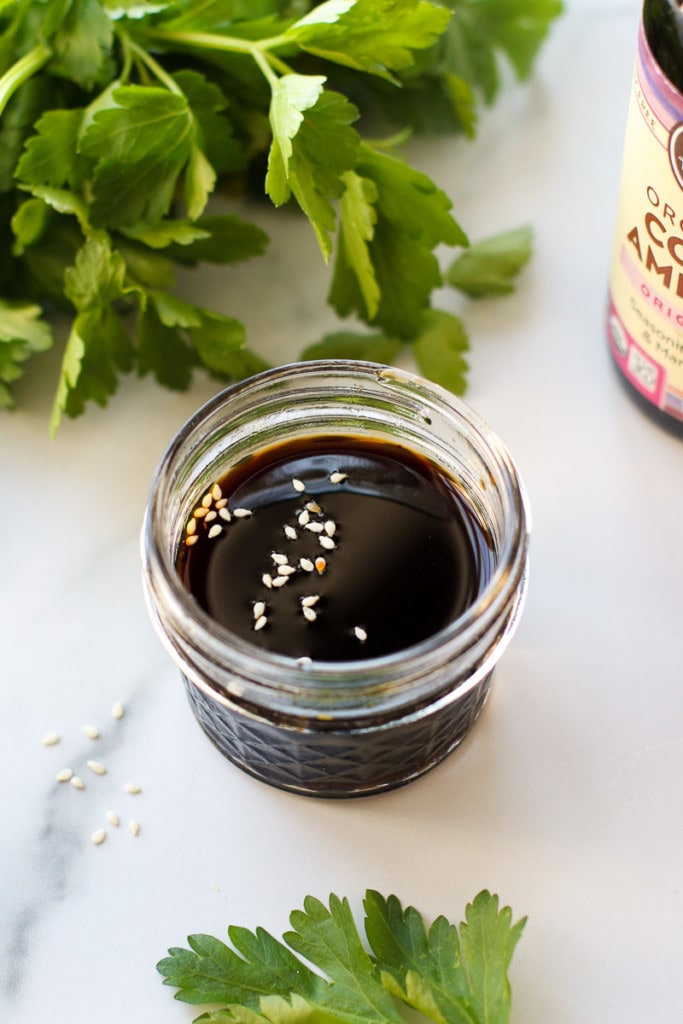
Health Benefits of Coconut Aminos
We like to use coconut aminos as a soy sauce alternative for a few specific reasons, including these health benefits:
- Made with whole foods: Coconut aminos are a seasoning sauce made from coconut sap and sea salt. Similar flavoring sauces often contain additives, such as thickening agents or chemical preservatives, MSG, added sugar, “natural” flavorings, or added colors.
- Lower sodium content: Coconut aminos contain 70 to 75% less sodium than regular soy sauce, making it a better choice for individuals looking to reduce sodium intake for heart disease and blood pressure management.
- Soy-free and gluten-free: Coconut aminos are an ideal condiment for people with soy allergies or intolerances and those following a gluten-free diet, as it’s naturally free from both soy and gluten.
- Rich in amino acids: Coconut aminos get their name from the amino acids they contain, which are the building blocks of proteins. Amino acids are essential for muscle repair, growth, and overall body function.
- Glycemic index: Coconut aminos have a lower glycemic index compared to many condiments, which means it may have a less significant impact on blood sugar levels, which is beneficial for individuals monitoring their glucose levels or managing diabetes.
- Vitamins and minerals: Coconut aminos contain a range of vitamins and minerals, although in small amounts. These can include potassium, vitamin C, and B vitamins, which contribute to various bodily functions such as maintaining healthy muscles, immune system support, and energy production.
- Vegan and paleo-friendly: Coconut aminos fit well within vegan and paleo dietary guidelines, offering a versatile seasoning option for those following these eating patterns.
- Antioxidant properties: While not as concentrated in coconut aminos as in other food sources, they still contain antioxidants that can help combat oxidative stress and may reduce the risk of chronic diseases.
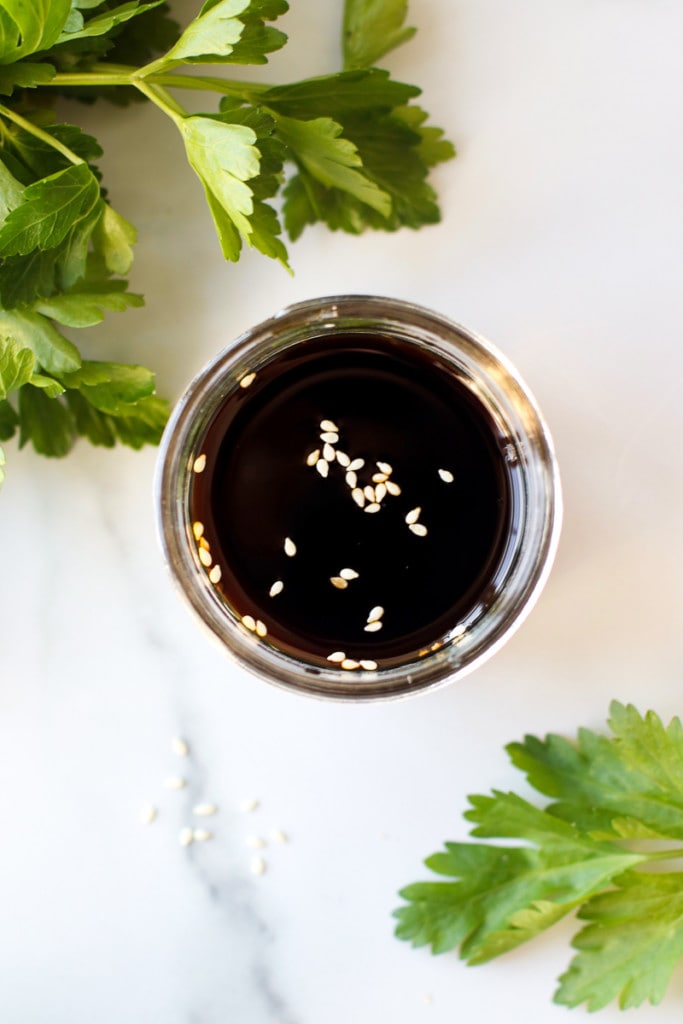
Coconut Aminos Nutrition Facts
Per serving, typically one teaspoon (5 ml), of coconut aminos contains:
- 5-10 calories
- 1-2 grams of carbohydrate
- 100-200 milligrams of sodium
- 0 grams of fat
- Negligible amount of protein
These values will vary slightly by brand.
Ways to Use Coconut Liquid Aminos
You can use this flavorful low-carb condiment in a variety of ways, including in (but not limited to) many of our favorite Asian recipes. Common ways to use coconut aminos are as a:
- Dipping sauce for egg rolls, sushi, or spring rolls
- Low-sodium alternative to soy sauce, tamari, or shoyu
- Low-sodium, plant-based, and vegan alternative to fish sauce
- Seasoning for fried rice or cauliflower fried rice
- Drizzle over roasted veggies
- Marinade for pork, chicken, shrimp, or steak
- Flavoring stirred into soups, stews, stir fry, or casseroles for a dash of umami flavor
- Component of homemade salad dressings or condiments, such as homemade buffalo sauce
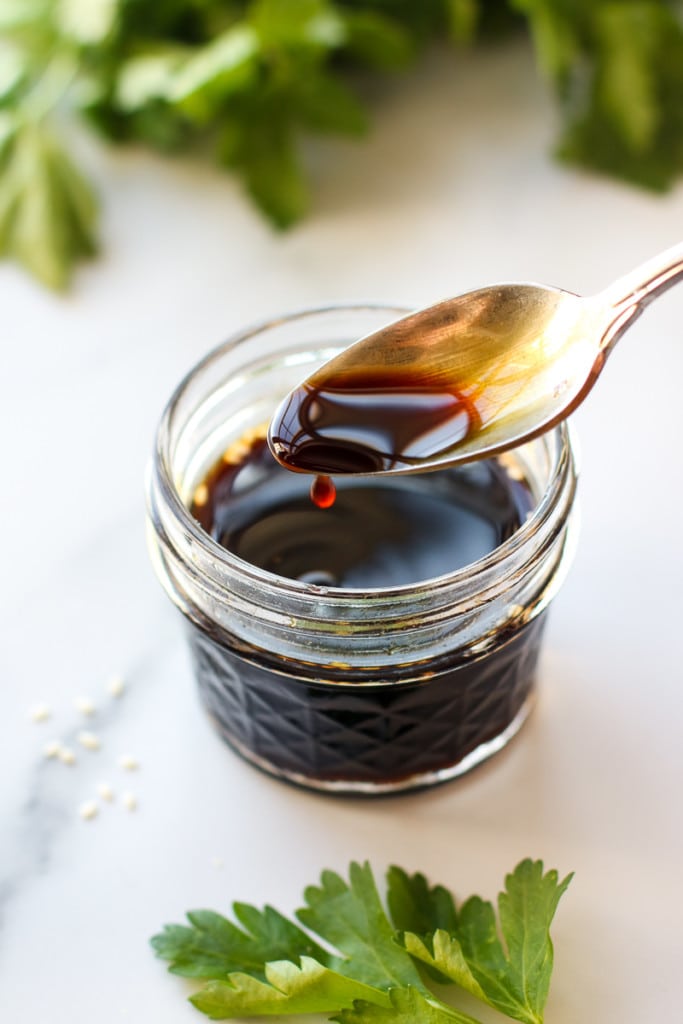
The Best Brands of Coconut Aminos We Recommend
We’ve been using coconut aminos for many years, and we’ve discovered our favorite brands based on taste and nutrition quality.
Here are 3 brands that we recommend most often. We’ve linked to each one on Amazon so you can order it yourself (or pick it up from your local grocery store or local natural food stores):
- Coconut Secret Organic Coconut Aminos – We use this brand most often because it’s the lowest in sodium. We love this brand’s fair trade, sustainable sourcing of non-GMO coconut products. One tablespoon contains 15 calories and 270 milligrams of sodium.
- Bragg Organic Coconut Liquid Aminos – This is our go-to brand for the best price and easy-to-find liquid organic coconut aminos. One tablespoon contains 30 calories and 420 milligrams of sodium.
- Big Tree Farms Organic Coco Aminos – We love this brand because it is organic, tastes great, and is cleanly made. The coco aminos from Big Tree Farms are brewed in small batches. One tablespoon contains 25 calories and 490 mg of sodium.
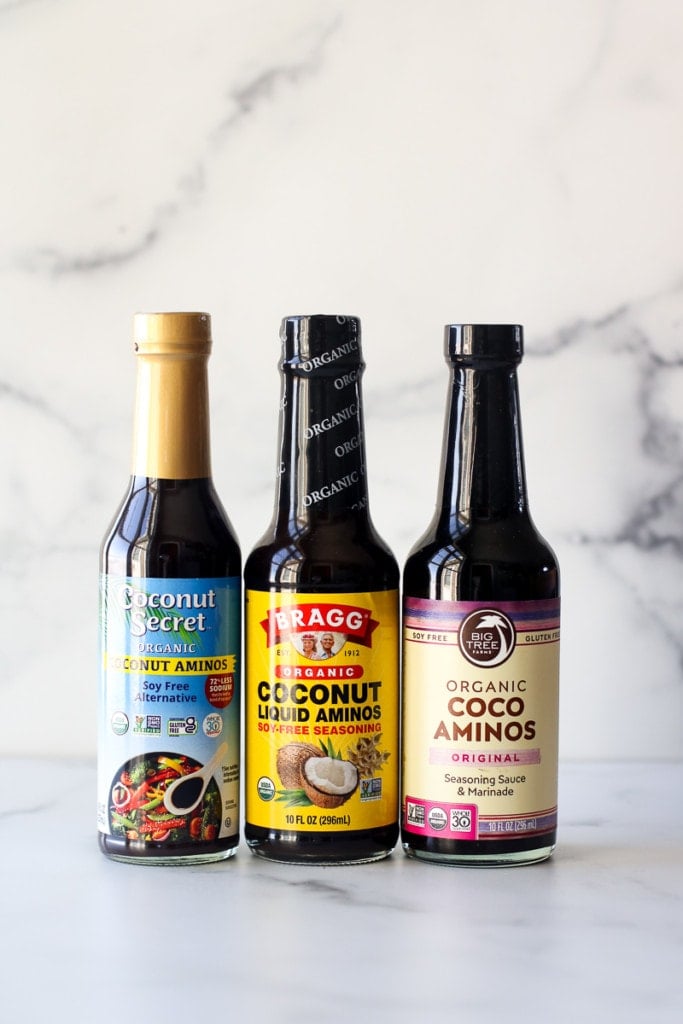
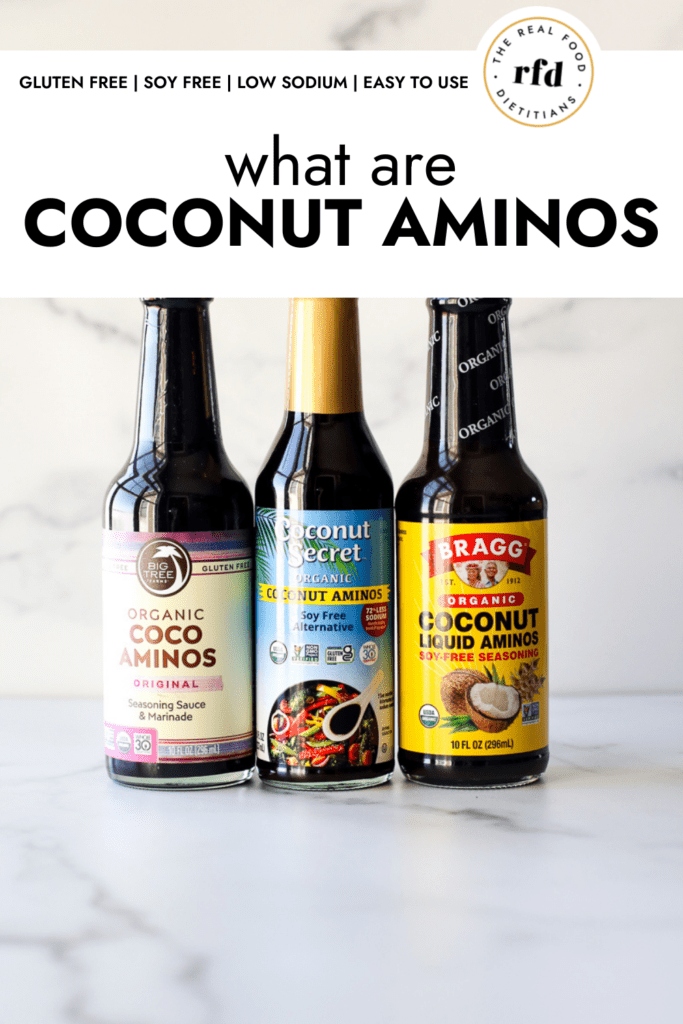
All photos and content are copyright -rotected. Please do not use our photos without prior written permission. If you wish to republish a recipe, please rewrite the recipe in your own unique words. Link back to the source recipe here on The Real Food Dietitians. Thank you!








